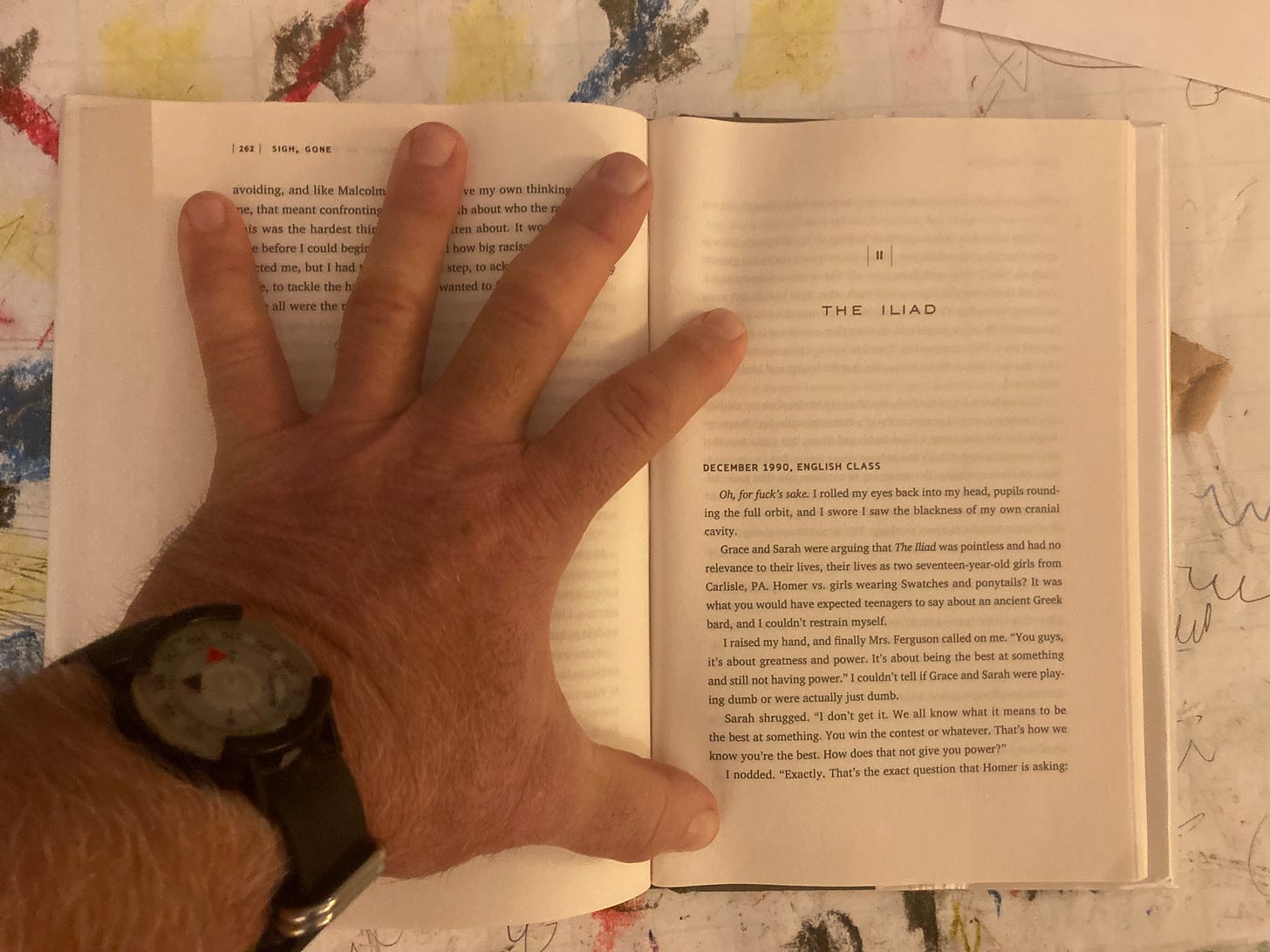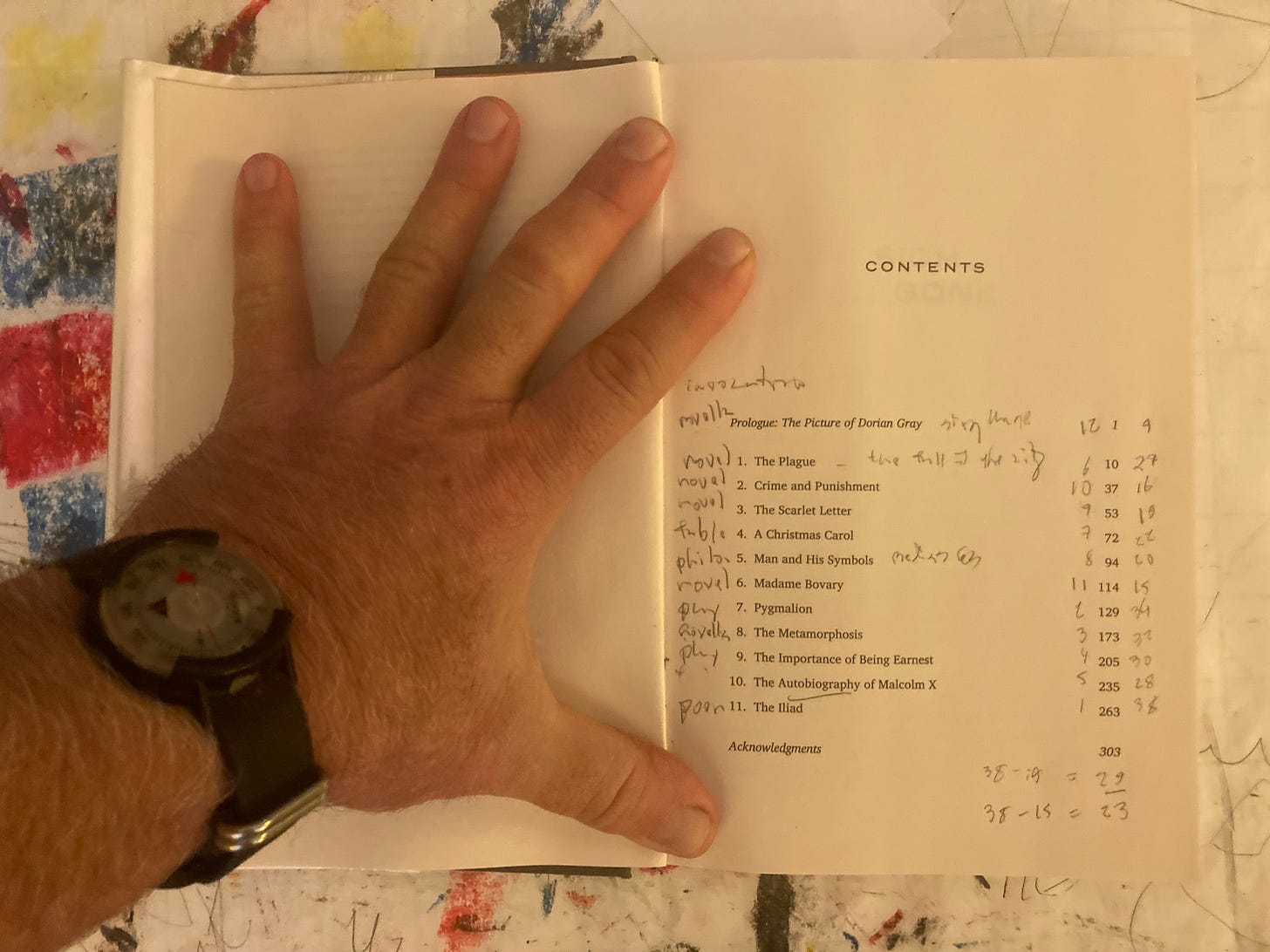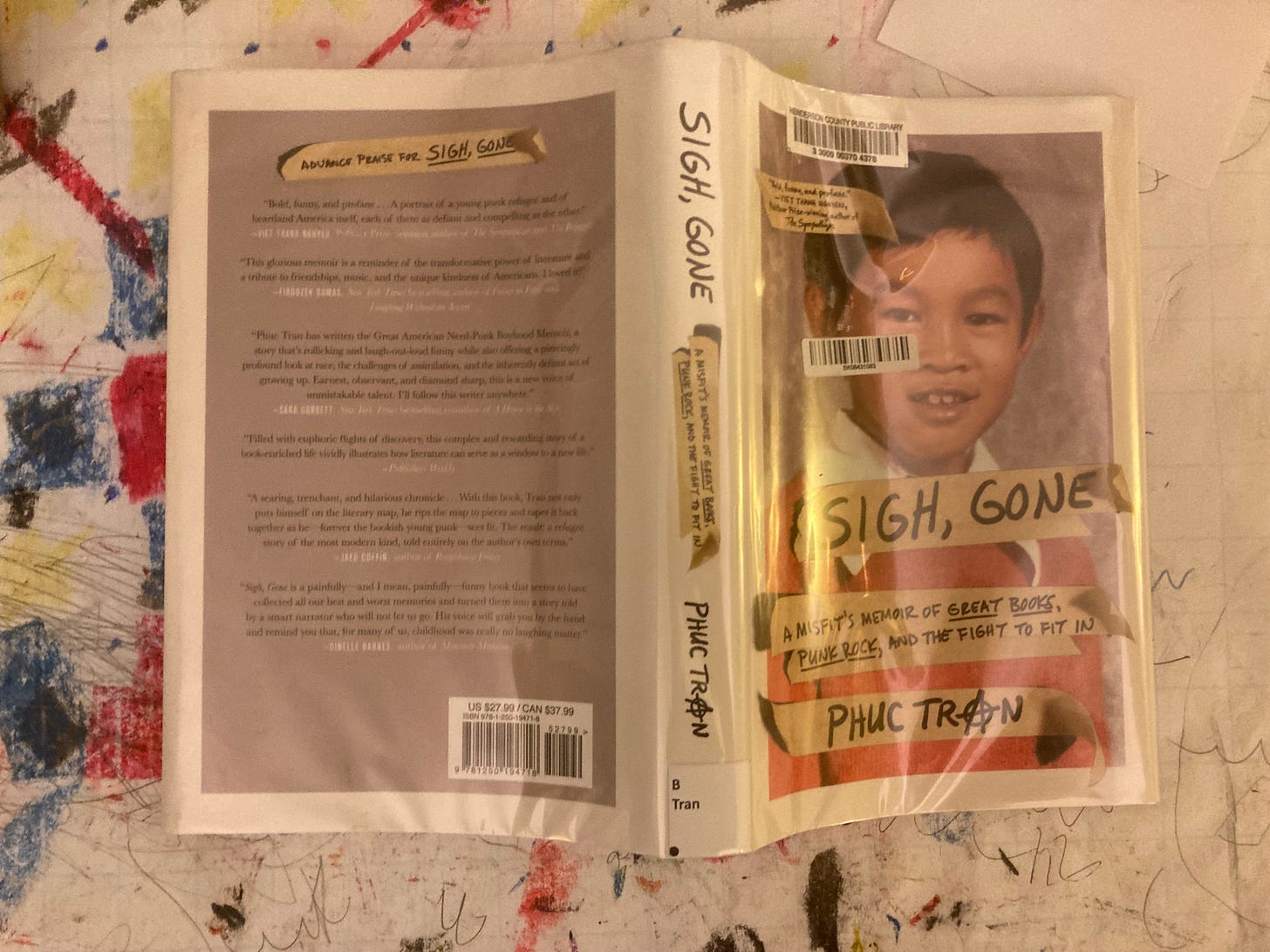I have started at the end. The author titled his final chapter The Iliad, meaning the poem. The title of that epic refers to its setting at the siege of Troy.
The title of the book Sigh, Gone refers to another city that fell. Saigon is still there, 1 of the 2 districts of Ho Chi Minh City, but its republic is gone these 50 years. (Sigh.)
The epic I read in high school just after that city fell in 1975 begins in a storm with the people fleeing the fall of Troy in boats, what do you know. Homer’s Iliad rather tells of drama among those who sack the city.
Rage. The wrath of Achilles.
The people Achilles is angry with are on his side. There are novels set among the people who took Saigon, now angry with one another, but they are not present in this book.
Here is something, though. This chapter is 11.
The oral Iliad got written down in 24 books, the Odyssey also in 24, and then Vergil composed my epic the Aeneid directly in 12. Good old Babylonian sexagesimals, like the seconds of the minutes of the hours and their months.
What is with 11 chapters total? As in turn it up to 11? The author did have a band.
That could be it. The Iliad is a loud chapter. It is the longest of the 11 chapters of Sigh, Gone. By 4 pages: at 38 it is the highest of high normal, 1 of 3 chapters in the 30s of pages, with 4 chapters in the 20s, and 3 in the teens.
The Iliad is also the chapter of Sigh, Gone named for a poem in an ancient literary language, in a book by a man who did a classics degree seriously enough to teach that language and Vergil’s Latin for a living. He also has taught German and Sanskrit.
Those 2 are philological languages. You learn German to read about ancient Greek and classic Latin, and Sanskrit to grasp their origins.
We are reading a bona fide, genuine smartie. His mind is analytic, interior, reflective. I have only late in life got one of those myself.
Achilles does not have one. No one in Homer’s poems does. In 1976, what do you know, Julian Jaynes pointed out that whenever anyone in them needs to have a think they see and talk to a god.
Julian, a level-headed natural scientist, argued that in Homer’s day everyone really did that. Homer himself starts his poem with rage. Then: sing, muse.
I point out that in my day when Phuc needs a think he looks at and talks to a book such as the Iliad. I do the same thing. I am doing it right now.
Most of The Iliad, the last chapter, 11, is a conclusion. It makes sense whose sensibility I may feel more strongly after I read what came first.
Judging by the titles of the prologue and chapters 1, 2, 3, 4, 5, 6, 7, 8, 9, and 10, titled The Picture of Dorian Gray, The Plague, Crime and Punishment, The Scarlet Letter, A Christmas Carol, Man and His Symbols, Madame Bovary, Pygmalion, The Metamorphosis, The Importance of Being Earnest, and The Autobiography of Malcolm X,
I will learn how Phuc gained a self that moderates discussion between his left and right brain by speaking with these books. That’s a modern bildung, becoming the author of your own life.
His table of contents is an ancient paedeia, the stuff you learn to become a citizen as you enter the curriculum vitae, the little race of life. It’s all for show and then you lose.
Phuc is an Achilles, a gifted agonist, but he can lose his shit. Oh for fuck’s sake, he begins The Iliad.
He is arguing as a senior in high school with 2 girls who don’t see a need to talk to the gods of the Iliad or learn about them. The origins of their consciousness lie with others.
Grace and Sarah were arguing that The Iliad was pointless and had no relevance to their lives. Note that late last century the star of the tennis team and her buddy bear the name of the Holy Ghost and the grandmother of Israel.
They make a good point. The Iliad is pointless, another fucking war story. Phuc talks back to these goddesses and the poem.
You guys, it’s about greatness and power. It’s about being the best at something and still not having power. O man that is such a Vietnamese scholar thing to say.
This is the second Viet Nam letter so far on Sigh, Gone by Phuc Tran. The first introduced the book on December 29, 2023.
Viet Nam letters respects the property of others under paragraph 107 of United States Code Title 17. If we asked for permission it wouldn’t be criticism. We explain our fair use at length in the letter of September 12, 2022.
The colophon of these Viet Nam letters, directly above, shows the janitor speaking with poet David A. Willson on a Veterans Day.










